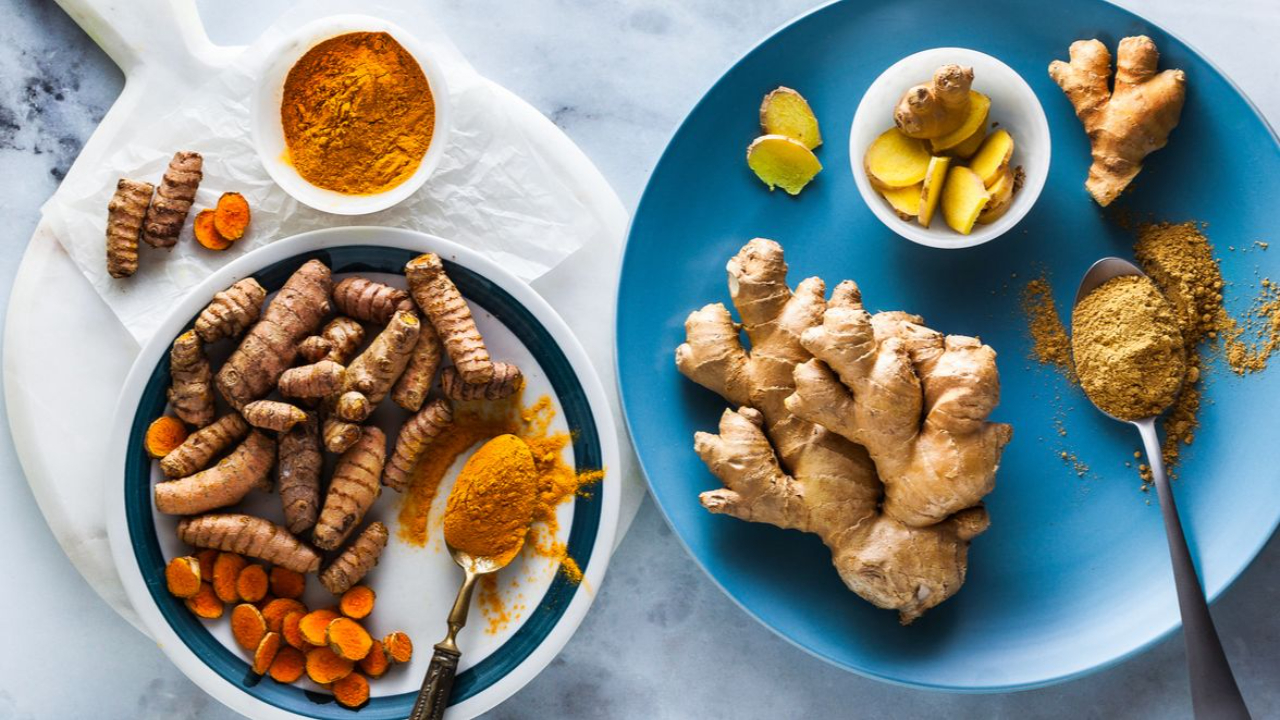Endometriosis Diet: Relief Through Nutrition
Nov 25, 2024
Endometriosis is a complex and often overlooked condition within the traditional medical system, even though it affects more than 1 in 10 women. Because of this, it can take an average of up to 8-10 years to get a diagnosis.
While there's no cure for endometriosis, integrating a holistic approach—including diet—can make a significant difference in managing symptoms and improving quality of life. In this post, we'll explore how a specific endometriosis diet can be part of your self-care strategy, along with a grocery list to help you get started.
Understanding Endometriosis
Endometriosis is a condition where tissue similar to the lining of the uterus grows outside of it, often on the ovaries, fallopian tubes, and other abdominal areas. Common symptoms include painful periods, heavy bleeding, severe pelvic cramping, painful sex, pain during ovulation, fatigue, pain during urination and bowel movements, digestive problems, ovarian cysts, and periods lasting more than seven days. Endometriosis is both an endocrine (ie, hormone) and immune disorder. Diet and lifestyle adjustments that support hormone balance and reduce inflammation can be beneficial.
Why Diet Matters in Endometriosis Management
Nutrition plays a crucial role in managing endometriosis symptoms. Research has shown that dietary interventions, such as increasing fiber intake and incorporating a variety of fruits, vegetables, protein, and healthy fats, can help ease endometriosis symptoms. Additionally, specific vitamins and minerals, like vitamin D and magnesium, have been linked to improved symptom relief.
When altering your diet, it’s also important to avoid foods that can worsen inflammation, such as processed foods, caffeine, alcohol, and gluten.
A Week of Endometriosis-Friendly Meals
Here’s a sample week of meals to support an anti-inflammatory, hormone-balancing diet for endometriosis:
Day 1:
- Breakfast: Chia pudding topped with blueberries and walnuts
- Lunch: Grilled chicken salad with mixed greens, avocado, and a lemon-olive oil dressing
- Dinner: Baked salmon with quinoa and roasted Brussels sprouts
Day 2:
- Breakfast: Scrambled eggs with spinach and a side of gluten-free toast
- Lunch: Lentil and vegetable soup with a side of mixed greens
- Dinner: Grass-fed beef stir-fry with broccoli and bell peppers
Day 3:
- Breakfast: Smoothie with almond milk, flaxseeds, spinach, and mixed berries
- Lunch: Quinoa bowl with grilled chicken, cucumber, tomatoes, and tahini dressing
- Dinner: Roasted chicken with sweet potatoes and sautéed kale
Day 4:
- Breakfast: Greek yogurt with sliced almonds, chia seeds, and strawberries
- Lunch: Grilled chicken and chickpea salad with cucumbers, cherry tomatoes, and parsley
- Dinner: Grilled turkey burger on a lettuce wrap with a side of roasted cauliflower and asparagus
Day 5:
- Breakfast: Chia seed pudding made with coconut milk, topped with raspberries
- Lunch: Chicken salad with avocado, spinach, and olive oil dressing
- Dinner: Baked cod with roasted zucchini, eggplant, and brown rice
Day 6:
- Breakfast: Scrambled eggs with sautéed mushrooms and kale
- Lunch: Turkey and avocado wrap in a gluten-free tortilla with a side of mixed greens
- Dinner: Grilled or baked salmon with a side of quinoa and roasted carrots
Day 7:
- Breakfast: Oatmeal with coconut milk, cinnamon, and sliced apples
- Lunch: Spinach and lentil salad with roasted vegetables and tahini dressing
- Dinner: Grilled or baked salmon with a side of steamed broccoli and cauliflower rice

Endometriosis Diet Grocery List
Building your grocery list around whole, anti-inflammatory foods can help manage the symptoms of endometriosis. Here's a sample list of foods that support a healthy, hormone-balancing diet:
Vegetables and Fruits:
- Leafy greens: Spinach, kale, arugula, and collard greens
- Cruciferous vegetables: Broccoli, cauliflower, Brussels sprouts, cabbage
- Berries: Blueberries, strawberries, raspberries, and cranberries
- Citrus fruits: Oranges, grapefruits, and lemons
- Anti-inflammatory fruits: Apples, berries, cherries, and grapes
- Herbs and spices: Oregano, rosemary, thyme, parsley, turmeric, ginger
Healthy Fats:
- Omega-3-rich fish: Salmon, mackerel, sardines
- Nuts and seeds: Walnuts, flaxseeds, chia seeds, hemp seeds
- Olive oil and avocados for heart-healthy fats
Lean Proteins:
- Poultry: Chicken, turkey
- Eggs: A great source of protein and healthy fats
- Grass-fed beef: A good source of iron, which is essential for women with heavy bleeding
- Legumes: Beans, peas, lentils for plant-based protein
Whole Grains:
- Quinoa, brown rice, and oats for fiber to support digestive health
Dairy:
- Yogurt and cheese: Rich in calcium may help alleviate symptoms
- Fortified plant-based milks: Almond or coconut milk, if you prefer dairy-free options
Foods to Avoid
- Caffeine: Excessive consumption can increase estrogen levels, exacerbating symptoms
- Alcohol: Can negatively impact hormone balance
- Processed foods: Often high in trans fats, which can worsen inflammation
- Refined sugars: Linked to increased inflammation and hormone disruption
- Gluten: Most commercial wheat in the U.S. is sprayed with chemicals that can cause hormone disruption

Natural Supplements and Therapies
In addition to diet, many natural supplements, such as magnesium, vitamin B1, and omega-3 fatty acids, have shown promise in reducing endometriosis symptoms. Regular exercise, acupuncture, and chiropractic care can complement your dietary efforts to manage pain and inflammation.
Test Eliminating Gluten in Your Endometriosis Diet
A study aimed at evaluating the effectiveness of a gluten-free diet on those with endometriosis-related pain showed that 75% of women reported a reduction in endometriosis-related pain after 12 months.
It’s possible that inflammation and immune response signaling molecules released from intestinal sites due to gluten exposure can cause inflammation and worsen endometriosis.
Environmental Exposures
Exposure to endocrine-disrupting chemicals (EDCs) like dioxins, PCBs, pesticides, and BPA may contribute to the development and progression of endometriosis by disrupting hormonal balance and immune function. These pollutants interfere with estrogen signaling and are linked to increased risk, highlighting the role of environmental factors in this condition.
Wrapping Up
While there's no cure for endometriosis, managing symptoms with a holistic approach—including an endometriosis diet—can make a significant difference in your day-to-day life. Focus on anti-inflammatory foods, and create balanced meals that support your overall health and well-being. By planning your meals around whole, nourishing ingredients, you can support your body’s healing and feel better equipped to manage endometriosis symptoms and the condition's progression.
If you have questions about tailoring an endometriosis diet to your specific needs or are looking for more guidance, we’re here to support you on your journey.
Sources:
https://www.ncbi.nlm.nih.gov/pmc/articles/PMC10049097/
https://www.ncbi.nlm.nih.gov/pmc/articles/PMC9983692/
https://www.rbmojournal.com/article/S1472-6483(13)00007-2/fulltext
https://www.scielo.br/j/ramb/a/FCFF8JMHW7YqL9RN6w38xPp/?lang=en
https://pubmed.ncbi.nlm.nih.gov/23334113/
https://www.ncbi.nlm.nih.gov/pmc/articles/PMC9783589/
Unlock Your Hormone Health With Our Free Checklist
You deserve to know what is going on with your body and to understand why (or even IF) you have hormonal imbalances.
So we created this FREE resource to help guide you with some of the top labs and tests to consider.








